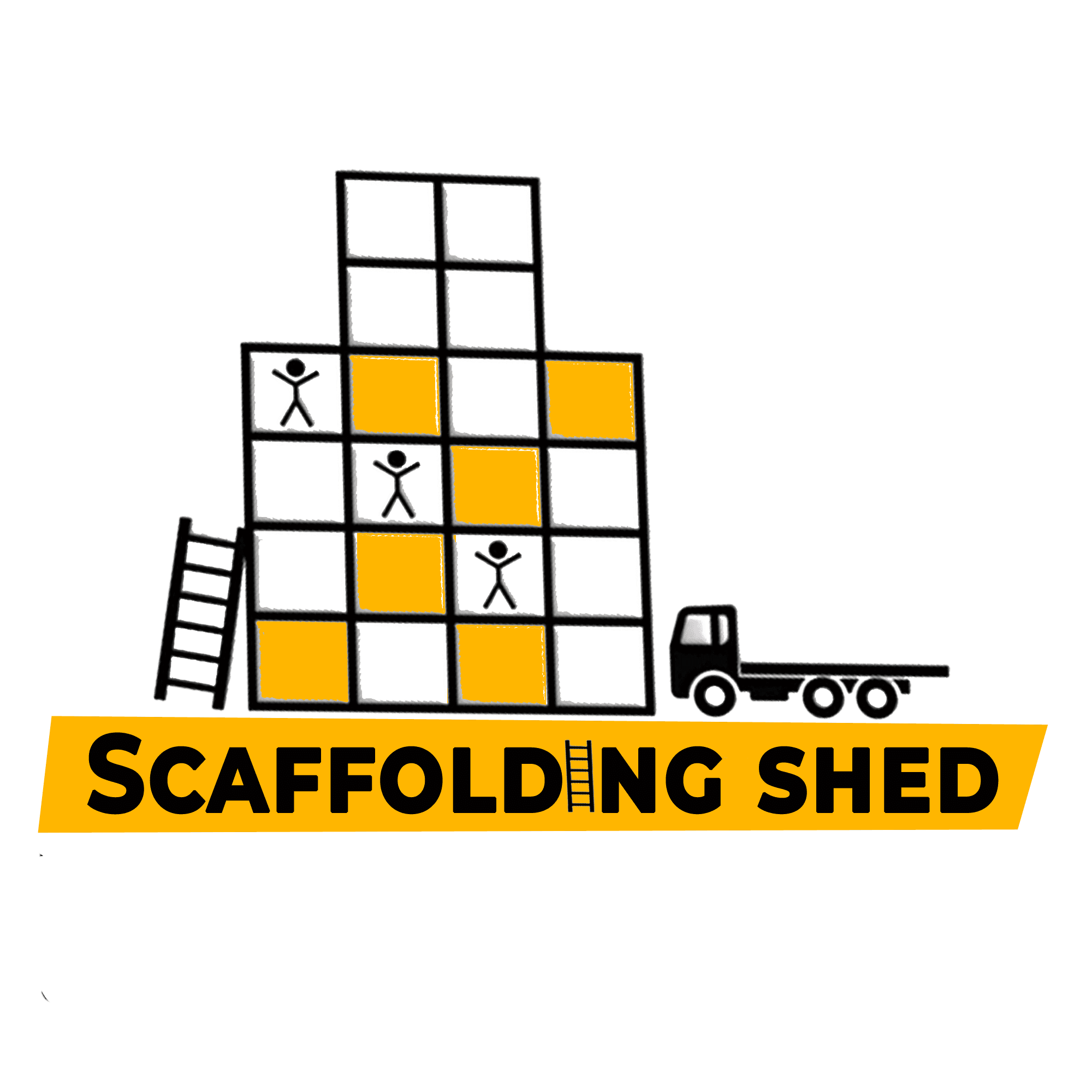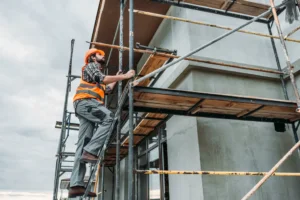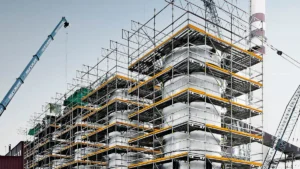Introduction
Scaffolding companies in NYC specialize in designing, erecting, renting, maintaining, and dismantling temporary access and protection systems for construction, restoration, or repair projects across the city. Their services support safety, compliance, and operational efficiency in a dense urban environment.
In a city defined by vertical construction, historical facades, and continuous restoration work, scaffolding firms act as critical logistical and safety partners. Their responsibilities span engineering evaluation, permit management, hoisting systems, sidewalk protections, and worker access platforms. Without their support, much of New York’s construction and infrastructure development would stall due to safety and compliance risks.
What types of scaffolding systems are commonly deployed in NYC?
Scaffolding companies in NYC use a range of systems tailored to building size, shape, location, and intended use. These typically include supported scaffolds, suspended scaffolds, modular system scaffolds ringlock, cuplock, frame, tube and clamp setups, sidewalk sheds, and motorized hoisting platforms.
- Supported Scaffolds: Ground based scaffolds constructed from vertical standards and horizontal ledgers. Used for exterior facade work, masonry, and painting.
- Suspended Scaffolds: Platforms suspended by ropes or mechanical systems from the roof or upper stories, ideal for tall buildings and overhangs.
- Sidewalk Sheds: Temporary roofed structures built over sidewalks to protect pedestrians from falling debris during facade repair or demolition.
- Modular Scaffolds Ringlock and Cuplock or Frame: Prefabricated systems with interlocking parts designed for fast assembly and strong load support.
- Tube and Clamp: Traditional scaffolding built from steel pipes and clamps, used for irregular geometries or custom structures.
- Hoists and Mast Climbers: Motorized platforms that move vertically to transport materials or workers to higher elevations efficiently.
Each system is evaluated based on load capacity, adaptability, wind resistance, erection speed, worker access, and compliance with safety regulations.
What regulations and safety standards govern scaffolding in NYC?
Scaffolding in NYC is governed by a combination of local building codes, state labor laws, and federal safety regulations. These include the NYC Building Code, OSHA standards, and specific training, inspection, and permit protocols.
- NYC Building Code outlines structural, design, and height requirements for scaffold erection and mandates permits for systems exceeding certain dimensions.
- Labor Law §240 Scaffold Law imposes strict liability on building owners and contractors for worker injuries due to elevation-related hazards.
- OSHA Standards require scaffolds to support four times the intended load and enforce guardrails, personal fall arrest systems, and platform integrity.
- Permit Requirements vary based on scaffold height and type. Suspended scaffolds and sidewalk sheds typically require DOB filings and adherence to inspection schedules.
- Inspection Protocols demand that a competent person inspect scaffolds daily and maintain a written log of safety checks and repairs.
Non compliance can result in heavy fines, work stoppages, and increased liability in case of accidents.
Which companies provide scaffolding services in NYC?
Numerous scaffolding companies operate in the five boroughs, serving residential, commercial, industrial, and municipal clients. Reputable firms typically have strong safety records, local permits, engineering staff, and a portfolio of past NYC projects.
- Skyline Scaffolding Offers full-service solutions including sidewalk sheds, roof protection, and hoisting across the metro area.
- Arsenal Scaffold Inc. Provides system scaffolding, hoists, and specialized scaffolding for complex urban projects.
- York Scaffold Equipment Corp. One of the oldest scaffold providers, known for modular systems and reliable delivery timelines.
- NYC Best Scaffold Offers commercial and residential services with a focus on environmentally responsible practices.
- Spring Scaffolding Specializes in sidewalk bridges, supported scaffolds, and suspended platforms for mid to high rise structures.
- Colgate Scaffolding Based in the Bronx, offering scaffold sales, rentals, emergency installations, and hoisting equipment.
- Consolidated Scaffold Provides turnkey scaffold projects including design, permitting, and dismantling services.
- NY Scaffold Serves all NYC boroughs with scaffold design, compliance support, and on-demand services.
- Phoenix Scaffolding A family operated firm providing scaffold installations for commercial and residential projects.
- Blue Jay Scaffolding Known for efficient sidewalk shed installations and full access solutions in congested environments.
When selecting a company, evaluate licensing, insurance, workforce training, inspection history, and project compatibility.
How do NYC scaffolding companies manage permits, inspections, and compliance?
Experienced scaffolding firms handle permitting, inspections, and compliance as integrated components of project delivery. This ensures legal operation, protects workers and the public, and avoids costly project delays.
- Permit Filing: For scaffolds exceeding set dimensions, companies submit applications through DOB platforms, including scaffold permits, CD 5 filings for suspended scaffolds, and notifications for street obstructions.
- Engineering Review: Larger or custom scaffold systems require design verification by licensed engineers, especially when anchoring to historic or high rise structures.
- Site Inspections: Daily inspections are required by trained personnel. Larger projects may require third party or DOB inspections at key milestones.
- Training Compliance: All workers on scaffolds must have completed certified safety training. Foremen must be registered and carry proof of DOB approved training.
- Documentation and Logs: Inspection logs, safety checklists, certifications, and maintenance records must be maintained on site and updated regularly.
- Liability Management: Companies provide insurance and legal documentation to cover potential risks under strict NYC liability laws.
Scaffold firms that systematize these processes are better positioned to execute projects without disruption.
What are cost drivers and pricing strategies for scaffolding in NYC?
Scaffolding pricing in NYC varies based on project size, complexity, duration, and compliance requirements. Understanding the main cost drivers helps clients budget effectively.
- Project Height and Width: Larger structures require more materials, labor, and time, increasing total costs.
- Facade Design: Uneven surfaces, overhangs, or setbacks necessitate customized scaffold layouts.
- Scaffold Type: Modular systems may have higher upfront costs but offer faster installation and greater safety.
- Permit Complexity: Projects requiring multiple permits or DOB coordination add administrative costs.
- Duration of Use: Longer scaffold installations incur higher rental, maintenance, and inspection expenses.
- Site Conditions: Narrow sidewalks, traffic congestion, or access restrictions increase labor and setup time.
- Safety Measures: Enhanced safety features, guardrails, netting, or covered walkways affect cost.
- Material Selection: Steel vs aluminum or custom finishes impact cost per unit area.
Pricing models may include per square foot charges, flat rates for entire systems, or itemized bids with labor, materials, and permit handling listed separately.
How do you evaluate and select a scaffolding company in NYC?
Choosing the right scaffolding partner involves evaluating technical capability, compliance track record, financial stability, and customer support.
- Licensing and Insurance: Ensure the firm is licensed in NYC and carries appropriate general liability and workers’ compensation coverage.
- Safety History: Review the company’s OSHA and DOB safety records, including past violations or incident reports.
- Project Experience: Prefer firms with a documented history of similar work in NYC, especially in the same borough or building type.
- Engineering Support: Firms with in house or partner engineers can deliver customized designs and manage permitting more efficiently.
- References and Reviews: Request client testimonials, speak with past clients, or review online feedback.
- Responsiveness and Support: Consider the firm’s communication, site visits, quote turnaround, and ability to manage fast track projects.
- Equipment Inventory: Companies with their own scaffold inventory are more reliable during supply disruptions.
- Contract Terms: Review payment terms, change order policies, and warranties in the service agreement.
A scoring matrix using the above criteria can help decision makers select the most reliable and qualified provider.
What services do scaffolding companies in NYC typically offer?
Scaffold providers in NYC offer a range of core and specialized services to accommodate varying construction project needs.
- Scaffold Rental and Installation: Design, delivery, erection, and dismantling of various scaffold systems.
- Sidewalk Shed Construction: Building protective structures over public walkways during exterior work.
- Suspended Scaffold Systems: Setup of swing-stage platforms for high-rise facade access.
- Hoisting and Rigging Services: Material and personnel lifts, often integrated into scaffold frameworks.
- Engineering and Design Consultation: Structural evaluations, compliance analysis, and stamped drawings.
- Permit Acquisition and DOB Filings: Handling all paperwork and communication with city agencies.
- Site Safety Management: Providing certified site safety managers, inspectors, and documentation.
- Maintenance and Inspections: Scheduled inspections, adjustments, and compliance checks throughout the scaffold’s lifecycle.
- Emergency Scaffold Deployment: 24/7 response for collapse recovery, facade stabilization, or code compliance.
Some firms also offer digital modeling, drone assisted inspections, and green scaffolding options for sustainable building sites.
What trends and innovations are shaping NYC scaffolding companies?
Scaffolding companies in NYC are evolving through regulatory pressure, urban design expectations, and technological innovation.
-
Aesthetic Improvements: Designers and property owners are demanding more visually appealing sidewalk sheds and scaffolds to enhance the cityscape.
-
Faster Permit Cycles: The DOB is streamlining some permitting workflows, requiring scaffold companies to integrate technology for compliance tracking.
-
Sensor-Based Safety: Companies are beginning to adopt load sensors, wind alarms, and IoT based monitoring for real time risk management.
-
Sustainable Materials: Recyclable aluminum scaffolds and modular systems with reusable components are gaining adoption.
-
Data Driven Maintenance: Inspection logs and condition reports are now managed via software to improve accuracy and regulatory compliance.
-
Design Integrated Scaffold Systems: Firms are working with architects to integrate scaffold design into project plans earlier, reducing delays and improving buildability.
-
On-Demand Deployments: Clients expect shorter lead times and more responsive installations, pressuring firms to hold inventory and streamline mobilization.
These trends are separating legacy firms from agile, forward thinking scaffold companies capable of meeting modern construction demands.
What do scaffolding companies in NYC do?
Scaffolding companies in NYC provide design, rental, installation, inspection, and dismantling of temporary structures that support construction, repair, and maintenance work on buildings and infrastructure, while ensuring compliance with city safety codes and permit regulations.
Are scaffolding permits required in NYC?
Yes, NYC requires permits for most scaffold structures, especially those over 40 feet tall or on public property. Sidewalk sheds and suspended scaffolds must be filed with the Department of Buildings before work begins.
What is the Scaffold Law in New York?
New York Labor Law §240, known as the Scaffold Law, imposes strict liability on property owners and contractors for elevation-related injuries involving scaffolds, ladders, or falling objects during construction work.
Which scaffolding systems are used in NYC?
Common systems include supported scaffolds, suspended scaffolds, modular systems ringlock, cuplock, sidewalk sheds, and tube and clamp structures. Selection depends on height, load, facade shape, and project requirements.
How much does scaffolding cost in NYC?
Scaffolding in NYC typically costs $8 to $20 per square foot, depending on system type, height, complexity, permit needs, and rental duration. Long term or high rise projects incur higher labor and compliance costs.
What safety measures do scaffold firms follow?
NYC scaffold companies follow OSHA standards, DOB codes, and daily inspections. Workers require certified training, and systems must include guardrails, toeboards, proper anchoring, and regular documented safety checks.
How long can a sidewalk shed stay up in NYC?
While intended as temporary, many sidewalk sheds remain for months or years. New legislation aims to reduce duration by mandating faster facade repair timelines and periodic permit renewals.
Can scaffold companies work in all NYC boroughs?
Yes, most reputable scaffold firms operate across Manhattan, Brooklyn, Queens, Bronx, and Staten Island, adapting systems to each borough logistical, zoning, and permitting requirements.
Do scaffold firms provide engineering support?
Top scaffold companies offer in-house or partner engineering services, including stamped designs, load calculations, anchoring plans, and DOB submission support for complex or custom scaffolding systems.
How do I choose a scaffolding contractor in NYC?
Evaluate licensing, insurance, safety record, project experience, client references, engineering capabilities, response time, and transparency of pricing. Choose firms familiar with DOB procedures and NYC regulatory landscape.
Summary
Scaffolding companies in NYC provide critical services that enable construction, renovation, and safety compliance in a complex urban environment. Their work is governed by stringent laws, requiring deep expertise, coordination with city agencies, and a strong commitment to worker and public safety.
Key takeaways:
- Scaffolding firms must offer technically sound, legally compliant, and safe access systems.
- Project success depends on matching the scaffold type to the building, facade, and use case.
- Permit acquisition, inspection scheduling, and documentation are essential parts of scaffold delivery.
- Price is determined by project size, complexity, duration, and site conditions.
- Contractor evaluation should prioritize licensing, safety history, experience, and responsiveness.
- The industry is evolving through sustainability, technology, and design integration.
By understanding these elements, construction managers, developers, and property owners can make informed decisions when engaging scaffolding services in New York City.



